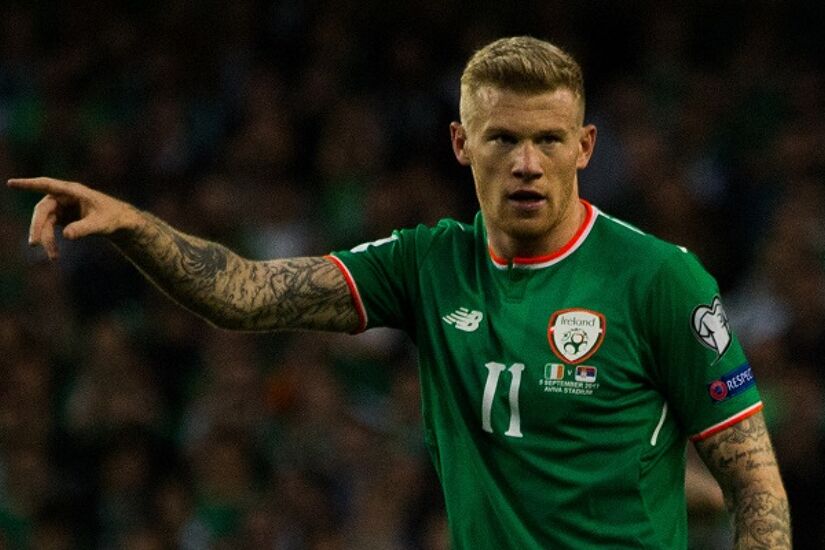Cian Mortimer: Britain's sporting authorities have turned a blind eye to anti-Irish discrimination - what will they do to stop it?

Credit: Eoin Smith (ETPhotos)
The past few weeks have seen an issue that has arisen in British football over the last number of years – the abuse faced by Irish nationalists – re-enter the public eye.
This issue concerns not only the disgusting abuse faced by a number of Irish footballers in Britain, but the blatant refusal of sporting bodies to address the issue.
There is no other ethnic group against whom such discrimination would be taken so lightly, so why is it different for the Irish?
Two people at centre of much discrimination are Stoke City winger James McClean and Hibernian manager Neil Lennon.
McClean has plied his trade in England for more than seven years.
For the majority of that time, he has been on the receiving end of vociferous abuse from away fans and, in some cases, his own team's supporters.
Much of this abuse stems from McClean’s refusal to wear a Remembrance Poppy, the reasons for which he has made very well-known.
McClean opts not to wear the poppy as it honours and helps to fund not only those who fought in the First World War, as intended, but all who served in armed conflict for Britain.
He explained in a 2014 open letter to his then employer, Wigan Athletic chairman Dave Whelan, his decision was due to what the poppy means in McClean's home town of Derry, the scene of Bloody Sunday in 1972.
Part of the issue in this regard is the media’s insistence on making a circus out of the issue every year, despite the fact McClean has made clear he won’t be wearing a poppy.
Other players have joined McClean in refusing to wear a poppy, but haven’t receive anywhere near the level of coverage and abuse that McClean does.
On Monday, Serbian midfielder Nemanja Matic explained his reasons for not donning a poppy at the weekend, which were broadly similar to McClean's own.
It isn’t just abuse on social media or shouting from the stand that McClean is subjected to either.
Last season, while playing with West Bromwich Albion away at Huddersfield Town, McClean was pestered with missiles and verbal abuse.
The entire incident was captured clearly on camera, yet the FA didn’t take any action. The incident was also cut out of the highlights on popular Match of the Day show on BBC. Why?
McClean has recently struck out on social media over the lack of protection the likes of he and Neil Lennon receive.
Like Lennon, McClean is on the receiving end of sectarian abuse, death threats, verbal aggression, objects thrown, which both he and his family have to put up with.
This is evident in a video which emerged from the end of Stoke City’s clash with Middlesbrough at the weekend.
However, all that has arisen from the situation is an investigation into an Instagram post by McClean with the FA warning the player for "his use of an offensive word on social media" but have decided to take no further action.
Former Celtic manager Lennon has also recently been the subject of much abuse recently, as he has been for years.
During a fiery Edinburgh derby at Tynecastle, Lennon was struck in the face by a coin launched by a Hearts fan.
That wasn't the first time Lennon had been assaulted at Tynecastle, as in 2011 he was attacked on the touchline by a fan who wrestled Lennon to the ground.
This assault came months after a package addressed to him, containing bullets, was intercepted by the police.
Lennon was placed under 24-hour security after a viable explosive intended for him was intercepted in the post.
Lennon’s assailant from Tynecastle was essentially let off scot-free, as he was acquitted of assault.
He had already served half of his sentence for the lesser charge of breach of the peace by the time the court date came around:
It’s now seven years since James McClean moved to England and Neil Lennon was assaulted at Tynecastle, yet the situation is as bad as it has ever been.
Discrimination against no other ethnic group is taken as lightly this, so the question remains - why is it okay against the Irish?
This is a situation that the English and Scottish Football Associations have allowed to develop. What, if anything, are they going to do to stop it?

